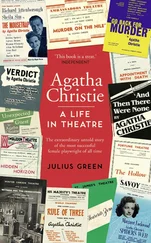Alice Green - Town Life in the Fifteenth Century, Volume 1
Здесь есть возможность читать онлайн «Alice Green - Town Life in the Fifteenth Century, Volume 1» — ознакомительный отрывок электронной книги совершенно бесплатно, а после прочтения отрывка купить полную версию. В некоторых случаях можно слушать аудио, скачать через торрент в формате fb2 и присутствует краткое содержание. Жанр: literature_19, foreign_antique, foreign_prose, Историческая проза, на английском языке. Описание произведения, (предисловие) а так же отзывы посетителей доступны на портале библиотеки ЛибКат.
- Название:Town Life in the Fifteenth Century, Volume 1
- Автор:
- Жанр:
- Год:неизвестен
- ISBN:нет данных
- Рейтинг книги:3 / 5. Голосов: 1
-
Избранное:Добавить в избранное
- Отзывы:
-
Ваша оценка:
- 60
- 1
- 2
- 3
- 4
- 5
Town Life in the Fifteenth Century, Volume 1: краткое содержание, описание и аннотация
Предлагаем к чтению аннотацию, описание, краткое содержание или предисловие (зависит от того, что написал сам автор книги «Town Life in the Fifteenth Century, Volume 1»). Если вы не нашли необходимую информацию о книге — напишите в комментариях, мы постараемся отыскать её.
Town Life in the Fifteenth Century, Volume 1 — читать онлайн ознакомительный отрывок
Ниже представлен текст книги, разбитый по страницам. Система сохранения места последней прочитанной страницы, позволяет с удобством читать онлайн бесплатно книгу «Town Life in the Fifteenth Century, Volume 1», без необходимости каждый раз заново искать на чём Вы остановились. Поставьте закладку, и сможете в любой момент перейти на страницу, на которой закончили чтение.
Интервал:
Закладка:
151
Stubbs, ii. 314, iii. 57, 65; Plummer’s Fortescue, 235-7. From time to time money was collected for the protection of trade; (Nott. Rec. ii. 34-36). In 1454 Bristol gave £150 for this purpose – the largest sum given by any town save London. (Hunt’s Bristol, 97-8.)
152
Rymer’s Fœdera, viii. 470.
153
Debate of Heralds, 49. In 1488 a letter from London to the money-changer Frescobaldo, at Venice, told that Flanders galleys which left Antwerp for Hampton fell in with three English ships, who commanded them to strike sail, and though they said they were friends, forced them to fight. Eighteen English were killed. But on the complaint of the captain of the galleys the King sent the Bishop of Winchester to say he need not fear, as those who had been killed must bear their own loss and a pot of wine would settle the matter. Davies’ Southampton, 475.
154
See Libel of English Policy, Pol. Poems and Songs, ii. 164-5. For complaints in 1444 and 1485 see Rot. Parl. v. 113.
155
Libel of English Policy, Pol. Poems and Songs, ii. 159. Capgrave de Illust. Henricis, 135. A man at Canterbury was accused in 1448 of saying that the king was not able to bear the fleur-de-lys nor the ship in his noble. (Hist. MSS. Com. v. 455.)
156
Heralds’ Debate, 17.
157
Schanz, ii. 27.
158
4 H. VII. cap. x.; Schanz, i. 368-9. Encouragement was also given to building of English ships – as for example by remission of tolls on the first voyage (Schanz, ii. 591).
159
Keutgen, 55, etc.
160
Ibid. 54.
161
Schanz, i. 332; ii. 575. A list of the charters granted to them follows, ibid. 575-8. See also treaty given, ibid. 159.
162
Ibid. i. 339, 340.
163
Ibid. ii. 162.
164
Ibid. i. 340.
165
1500; Schanz, ii. 545-7.
166
In 1505. Henry VII. issued regulations for the Merchant Adventurers. They might meet in Calais to elect governors; and they were at the same time to elect a council of twenty-four called “assistants,” who were to have jurisdiction over all members and power to make statutes, and to appoint officers both in England and in Calais to levy fines and to imprison offenders. The council filled up its own vacancies. Every merchant using the dealings of a Merchant Adventurer was not only to pay its tolls and taxes, but must enter the fellowship and pay his ten marks. The Calais officials were to proclaim the marts whenever required to do so. The Adventurers might appoint their own weighers and packers, and have nothing to say to the royal officers. (Schanz, ii. 549-553.)
167
Schanz notes the settlement in Antwerp as one of the most critical turning points of English industrial and commercial history (i. 339). The movement had well begun in the fourteenth and early part of the fifteenth centuries, but the real influx of English traders was from 1442-4 (ibid. i. 9). For the treaties with the Duke of Burgundy in 1407 concerning English traders in Flanders, Rymer’s Fœdera, viii. 469-78.
168
Schanz, ii. 577, 581, 582.
169
Ibid. i. 343, 344.
170
12 Henry VII. c. 6.
171
Wheeler, Treatise of Commerce, 19, 23.
172
“Déjà au quinzième siècle les Écossais avaient à Veere en Zélande un dépôt pour leurs marchandises, administré par un ‘Conservator.’ Sir Thomas Cunningham remplit cet office jusqu’à sa mort en 1655, et ce ne fut que le 28 novembre, 1661 ( sic ), que Sir W. Davison en fut chargé; il demeura de temps en temps à Amsterdam, où il eut des querelles à l’occasion des impôts municipaux. Plus tard, il eut des différends avec le pasteur épiscopal Mowbray, qui par suite fut déplacé, et enfin avec les Écossais de Veere eux-mêmes. En 1668 Davison fit un traité avec la ville de Dordrecht, pour y transporter les affaires d’Écosse; mais comme les Écossais ne voulurent pas s’y conformer, Davison fut contraint de prendre son congé en mai 1671; Veere resta le dépôt du commerce écossais. Consultez encore l’ouvrage très rare. “An account of the Scotch Trade in the Netherlands, and of the Staple Port in Campvere. By James Yair, Minister of the Scotch Church in Campvere. London, 1776.” (Œuvres Complètes de Huygens. Amsterdam, 1893. Note on a letter from R. Moray to Huygens, Jan. 30, 1665.)
173
Libel of English Policy. Pol. Poems and Songs, ii. 180, 181. See Hist. MSS. Com. x. 4, 445-6. William Mucklow, merchant at London, sent commissions to his son Richard at Antwerp; a Richard Mucklow was warden of S. Helen’s, Worcester, either in 1510 or 1519 (446). An account book of Wm. Mucklow, merchant, “in the Passe Mart at Barro, Middleburg, in the Synxon Mart at Antwerp, in the Cold Mart and in Bamys Mart,” in 1511 records sales of white drapery and purchase of various goods – a ball battery, fustian, buckram, knives, sugar, brushes, satin, damask, sarsenet, velvet, pepper, Yssyngham cloth, spectacles, swan’s feathers, girdles, “socket,” treacle, green ginger, ribands, brown paper, Brabant cloth, pouches, leather, buckets, “antony belles,” “sacke belles,” sheets, &c.; and the names of the vessels in which the goods were shipped.
174
Rot. Parl. iv. 126; Schanz, i. 443-445. For English reprisals, 27 H. VI. cap. i.; 28 H. VI. cap. i.; 4 Ed. IV. cap. 5.
175
Schanz, ii. 191-3, 203-6. Negotiations were still going on in 1499 as to the trade disputes between Henry the Seventh, the Archduke, and the Staple at Calais (Schanz, ii. 195-202). The main point in dispute was allowing English cloths to be cut in the Netherlands for making clothes.
176
In 1493; Schanz, i. 17, 18.
177
Schanz, ii. 582-5.
178
Ibid. i. 7-11.
179
Schanz, i. 31, 32.
180
Ibid. i. 339.
181
Schanz, i. 345; ii. 561, 562.
182
Instances, Schanz, ii. 557, 558.
183
Ibid. ii. 564.
184
Ibid. ii. 543.
185
From Antwerp Archives; Schanz, ii. 539-43.
186
In November, 1504, the Staplers and Adventurers appeared before the Star Chamber. The Staplers pleaded a charter which declared them free from the jurisdiction of the Adventurers. The Star Chamber decided that every Stapler who dealt or traded as an Adventurer was to be subject to the courts and dues of the Adventurers: and every Adventurer dealing as a Stapler in like manner to be subject to the Staple (Schanz, ii. 547). This decision seemed to imply the ruin of Staplers, but the next year it was explained that the authentic interpretation was simply that “the merchants of the Staple at Calais using the feate of a Merchant Adventurer passing to the marts at Calais should in those things be contributories to such impositions and charges” as the Adventurers had fixed (ibid. 549); and that they could not be compelled to join the Adventurers’ company. In 1510 Henry the Eighth repeated the decree of Henry the Seventh that the Adventurers must not force Staplers to join their body (555). For the pleadings before the Star Chamber under Henry the Eighth see Schanz, ii. 556-564.
Читать дальшеИнтервал:
Закладка:
Похожие книги на «Town Life in the Fifteenth Century, Volume 1»
Представляем Вашему вниманию похожие книги на «Town Life in the Fifteenth Century, Volume 1» списком для выбора. Мы отобрали схожую по названию и смыслу литературу в надежде предоставить читателям больше вариантов отыскать новые, интересные, ещё непрочитанные произведения.
Обсуждение, отзывы о книге «Town Life in the Fifteenth Century, Volume 1» и просто собственные мнения читателей. Оставьте ваши комментарии, напишите, что Вы думаете о произведении, его смысле или главных героях. Укажите что конкретно понравилось, а что нет, и почему Вы так считаете.












